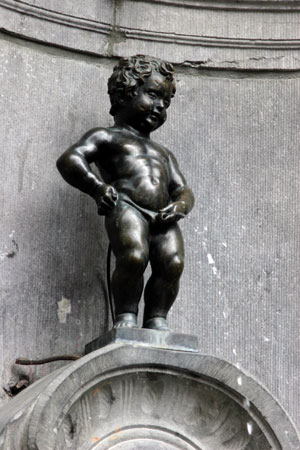

Brussels, Belgium 1388. A document from the archive of the Cathedral of Santa Gudula mentions for the first time the famous monument Manneken Pis. We do not know exactly who and when he made the sculpture, but it was stolen several times over the centuries, and that the state mentioned in that document is not what you can see today. In 1619, the artist Jerome Duquesnoy, father of the famous sculptor François Duquesnoy, made a new bronze statue. But the boy's adventures praying had not ended. 1695
The citizens of Brussels had to protect the statuette from the siege of the French. Since then, Manneken Pep has the inscription:In petra exaltavit me, et nunc exaltavi caput meum super inimic meos. In the 1960s, however, they were unable to protect themselves from thieves. There are those who say that Duquesnoy's work was finally recovered, which is a replica in the old town, on the corner of the streets Ehaya and Chene, a statue close to Grand Place.
In the absence of knowing the exact origin of the urinal, several legends have been opened to explain the reason of the State.
One day, the enemies besieged the city and placed a powerful explosive device to knock down the walls. A boy named Juliaanske saw that they lit the wick, quickly climbed up to the wall, and urinating on top of it, shut it down to save the city.
Another legend brings us to 1142, the battle of Ransbek. Godofredo, from Lorena, had tied his son's crib to the branches of an oak tree to infuse value to the soldiers. The girl, from above, prayed on her enemies.
According to the most esoteric version, on one occasion the son of a noble from Brussels left a procession because of his roasting character. Carefree, he did things on the corner of a witch's house, and the witch turned it into a statue.
The last legend has a rich merchant and his son as the protagonist. One day, the merchant lost his son and his father offered whoever found him a considerable reward. The efforts of the neighbors proved fruitless, as hours later it was the father himself who found the child urinating in a garden. Not knowing who to pay him, he spent the money on a statue of his son and offered the monument to the citizenry to thank them for their effort.